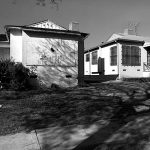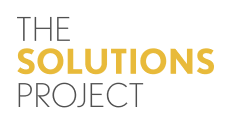
On October 31st, the LA City Council discussed options for raising new revenue to address the city’s ongoing budget deficit. Despite years of budget cuts to city services, next year’s deficit is estimated at $216 million. The City Council finally realized that revenue solutions must be on the table and is planning to place one of four proposed measures on the citywide ballot next March or May.
The four proposals include increasing the sales tax by a half-cent, restructuring the tax on transfers of property, increasing the parking occupancy tax, or establishing a parcel tax to fund the recreation and parks department. Council President Wesson and Council members Parks, Koretz and Rosendahl are among those leaning toward supporting a sales tax increase because it would raise more revenue than other proposals (an estimated $208-215 million per year) and because the tax burden would be shared widely across the city. [Update: On November 20th, the City Council voted 11-4 to place the sales tax proposal on the March 5th ballot.]
Increasing the sales tax may not seem like a popular option but based on results from the November 6th election, Los Angeles voters might approve a local sales tax increase. In California cities and counties, 25 of 28 general sales tax proposals were approved by voters. In LA County, voters approved sales tax increases in all three cities with proposals on the ballot, with each measure well above the majority approval needed to win.
- Culver City: 76.6 percent of voters approved a half-cent sales tax increase
- City of Commerce: 67.3 percent of voters approved a half-cent sales tax increase
- La Mirada: 66.0 percent of voters approved a one-cent sales tax increase
Measures to increase the sales tax for specific purposes did not fare as well. Statewide, only three out of seven measures received the two-thirds voter approval needed to win. In LA County, Measure J (the proposal to extend the half-cent sales tax for highway and transit projects originally approved by voters in 2008) won 64.7 percent of the vote, narrowly falling short of the necessary two-thirds approval.
Finally, and most importantly, the passage of Prop 30 may also be a good sign for local revenue prospects in LA. Prop 30 will increase the state sales tax by a quarter-cent for four years and increases income tax rates for individuals earning more than $250,000 a year for seven years. It is a major step toward addressing the state’s budget crisis by raising $6-9 billion each year for education, public safety and other priorities. Statewide, 53.9 percent of voters supported Prop 30 and in LA County support was even higher (59.9 percent). Looking toward the spring citywide elections, the City of LA needs to learn from the hard-fought, successful battle to win Prop 30. If it doesn’t, there won’t be any new revenue to tackle next year’s budget deficit.












